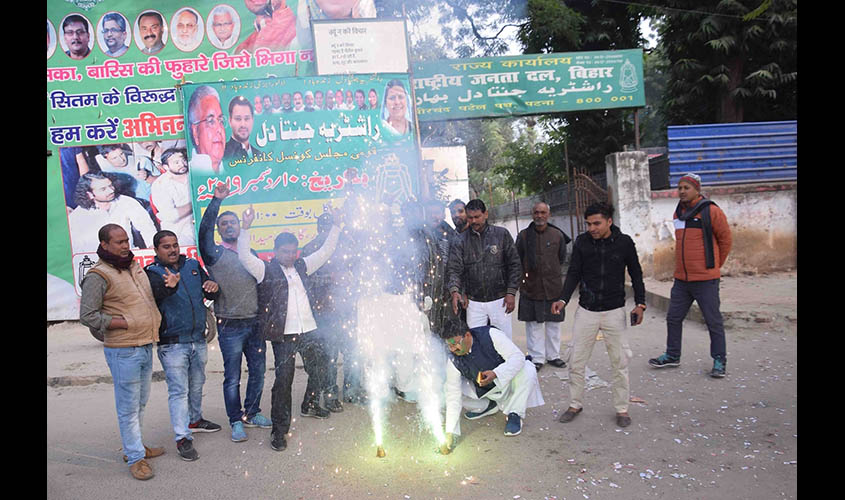Attempts to amend tenancy Acts and cow protection laws sealed BJP’s fate.
New Delhi: Attempts to amend Tenancy Acts and the strong push to protect cows sealed the defeat of the BJP particularly in the Jharkhand Assembly polls, the results of which were declared on 23 December, and in the Assembly polls across the tribal belts in general, experts have said.
The strong cow protection law, attempts to change the Tenancy Acts, a crackdown on local activists, eviction of tribals from forest areas, coupled with the Supreme Court’s recent ruling on the Forest Rights Act and SC/ST Prevention of Atrocities Act, and the MP High Court’s 2016 order quashing reservation in government promotions, are some of the major issues which have gone against the sentiments of the tribals, according to experts.
However, the BJP was fully aware that a strong pitch for a cow protection law and beef ban may hurt the party’s poll prospects in the tribal belts, but the BJP did not retract from going ahead with its commitment to stop rampant cow slaughter.
Bijendra Jha, a scholar from Jawaharlal Nehru University (JNU), told The Sunday Guardian: “In Jharkhand, the tribals were angry with the Raghubar Das government because it had tried to amend the Chota Nagpur Land Tenancy Act, 1908, and the Santhal Paragana Tenancy Act, 1949, in 2016 which had sparked huge protests, later known as Patthalgarhi.”
“The tribals were also angry with the BJP-led state government for promoting beef ban activities. Some of the individuals from this community were even killed by the cow vigilante groups for allegedly being involved in cow and beef smuggling. These activities hurt the sentiments of the tribals and forced them to vote against the BJP in the Assembly polls,” Jha said.
The BJP had bagged 11 out of Jharkhand’s 14 Lok Sabha constituencies, but a few months later, the party failed to even reach the halfway mark in the 81- member Assembly in the state.
In the last 15 years, the BJP has been witnessing a rising popularity graph in tribal regions. The party not only succeeded in capturing the imagination and expectations of tribal voters, but also formed a strong association with them. This association helped BJP in ruling Chhattisgarh and Madhya Pradesh for three terms and Rajasthan for many years. However, since 2016, the BJP is witnessing a general resentment from the tribal groups.
B.P.S. Netam, former IAS officer and a tribal leader, told The Sunday Guardian: “Tribal voters across the country are unhappy with the BJP as in many states, the party failed to protect and provide the rights of tribals guaranteed under the Indian Constitution. Some of the laws regarding forest rights, were not being implemented properly. Also, the tribals were feeling hurt due to the BJP’s strong push for eviction of tribals from their land.”
The tribal belt, in general, has given an anti-BJP verdict in Assembly polls. Last year, the BJP witnessed defeats in Chhattisgarh, Rajasthan and Madhya Pradesh Assembly polls—the three states with a sizable population of tribal voters.
In Chhattisgarh, where tribals make up 30% of the population, the BJP won just four out of 29 seats reserved for the tribals. In Madhya Pradesh, which has 21% tribal population, the BJP won just 16 of the 47 tribal reserved seats and in Rajasthan, where 25 of the 200 Assembly seats are reserved for the Scheduled Tribes, the BJP managed to win only 10.

